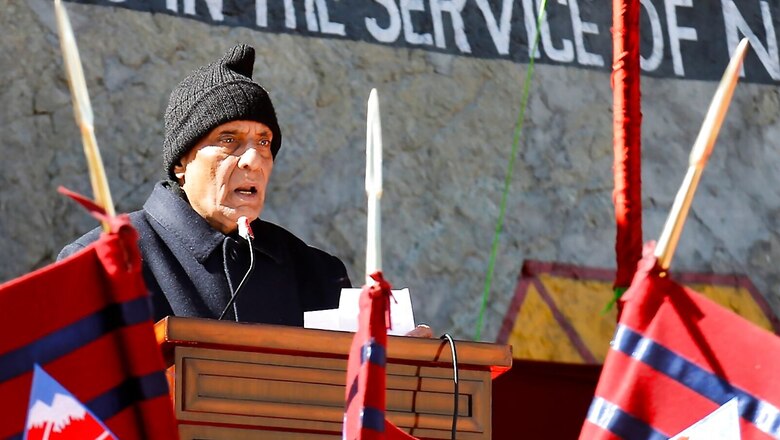
views
India’s northward journey of development will be complete after reaching Gilgit and Baltistan, parts of Pakistan-occupied Kashmir, Defence Minister Rajnath Singh had said on Thursday while referring to the 1994 resolution passed in the Parliament on getting back the territories “under illegal occupation” of the neighbouring country.
Singh, who was addressing the Shaurya Diwas function here to mark India’s first military victory after independence, also said that Pakistan is “committing atrocities” against people in its occupied Kashmir and will have to bear its consequences.
But what is the Gilgit-Balkistan region? News18 takes a look at its history:
Gilgit-Balkistan is a high-altitude area in the northwestern corner of Jammu and Kashmir. The region was once part of the princely state of Jammu and Kashmir, but has been under Pakistani control since November 4, 1947, when tribal militias and the Pakistan army invaded Kashmir.
The region was renamed “The Northern Areas of Pakistan” and placed under Islamabad’s direct control. The Northern Areas were distinct from Pakistan-occupied Kashmir (PoK), which Pakistan refers to as “Azad Kashmir”; however, the Northern Areas are more than six times the size of PoK. The ‘Northern Areas’ became Gilgit-Baltistan after the Pakistani government passed the Gilgit-Baltistan Empowerment and Self-Governance Order in August 2009, a report by Indian Express states.
A Coup by 2 British Officers
Unlike the PoK, Pakistan gained control of this area with the help of two British military officers. Because of its strategic location on British India’s northern borders, the British leased the Gilgit agency from the Maharaja of Jammu and Kashmir for 60 years in 1935. A British officer administered it on behalf of the political department in Delhi. The security of the region was the responsibility of the Gilgit Scouts, a British-led military force.
On August 1, 1947, the British terminated the lease and returned the region to the Maharaja, citing the impending independence. Brigadier Ghansar Singh of the J&K state forces was appointed as governor of the region by the Maharaja. Major W A Brown and Captain A S Mathieson of the Gilgit Scouts, as well as Subedar Major Babar Khan, a relative of the Mir of Hunza, were loaned to the Maharaja at Gilgit. Major Brown imprisoned Brigadier Ghansara Singh and informed his former British Political Agent, Lt Colonel Roger Bacon, who was then in Peshawar, of Gilgit’s accession to Pakistan as soon as Maharaja Hari Singh acceded to India on October 31, 1947.
On November 2, Major Brown officially raised the Pakistani flag at his headquarters, claiming that when the Maharaja signed the Instrument of Accession in favour of India, he and Mathieson chose to serve with Pakistan. Sardar Mohammed Alam, a Pakistani government nominee, was appointed as the Political Agent and took possession of the territory two weeks later. It was used as a base by Pakistani army soldiers and tribals to launch attacks on other towns and cities in the region, including Skardu, Dras, Kargil, and Leh, the report states.
Current Status
It has an elected Assembly and a Council led by Pakistan’s Prime Minister. This Council has complete control over the region’s resources and revenues. In any case, the so-called regional government is overseen by Islamabad’s federal Ministry of Kashmir Affairs and Gilgit-Baltistan. Gilgit-Baltistan, also known as the Northern Areas, is not mentioned in the Pakistani constitution: it is neither independent nor has provincial status. This assists Pakistan in maintaining ambiguity about the region, as it does with PoK.
What is India’s Stance
India considers Gilgit-Baltistan to be part of Indian territory that Pakistan has illegally occupied. The region is a “part of of Jammu and Kashmir, which is an integral part of India by virtue of its accession to it in 1947,” according to a 1994 unanimous parliamentary resolution.
Read all the Latest Explainers here











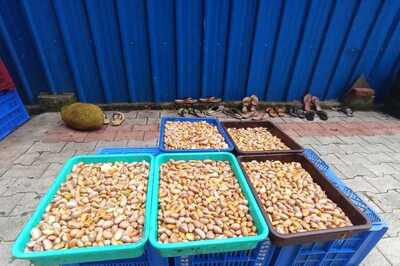

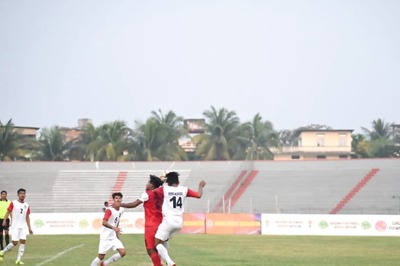
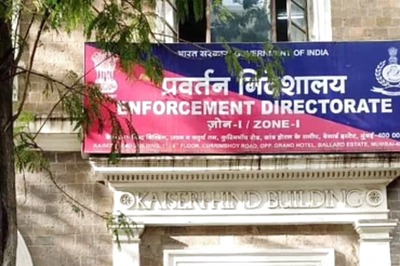

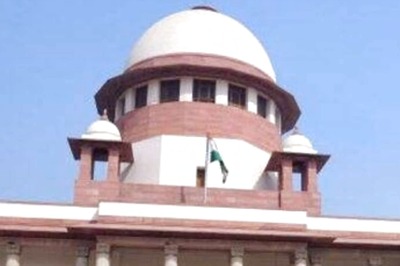



Comments
0 comment